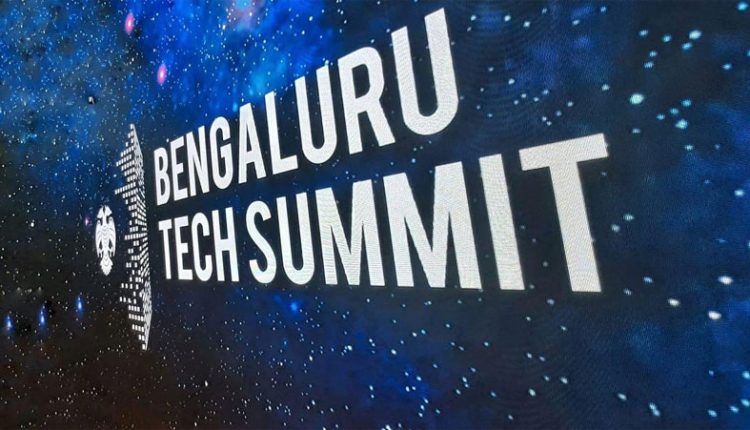Bengaluru: The second day of the 27th edition of Bengaluru Tech Summit, 2024, commenced with a session on space technologies. The session had keynote speeches from Dr. Somanath, Secretary, Department of Space, Government of India and Chairman, Indian Space Research Organisation (ISRO) with Dr. B K Das, Director General, Defence Research Development Organisation (DRDO) and Ms. Anne Neuberger, Deputy National Security Advisor of the United States of America. The session was also attended by Shri. Priyank Kharge, Hon’ble Minister for Information Technology, Biotechnology and Science and Technology and Rural Development and Panchayati Raj, Government of Karnataka and Dr. Ekroop Caur IAS, Secretary to Government, Department of Electronics, Information Technology, Biotechnology and Science and Technology, Government of Karnataka.
The session opened with welcome remarks from Mr. Kris Gopalakrishnan who also anchored the session. Mr. Kris Gopalakrishnan noted the importance of India-USA country-country and people-people co-operation for growth and innovation in space sector.
Dr. Somanath congratulated Government of Karnataka for a successful Bangalore Tech Summit and gave an overview of the Indian space program from its genesis and the major achievements of ISRO over the years. He laid down the vision of ISRO for 2047 and the various missions that will lead ISRO and India towards the vision. He also informed the gathering that through Indian Space Policy, 2023 many start-ups have accelerated their innovation journey and now Indian Start-Ups have demonstrated both launch vehicle and satellite manufacturing and operations capabilities. He also informed that technology transfer to India’s private sector is an important initiative of ISRO and noted that Bengaluru is emerging as a destination for new space companies and start-ups.
Ms. Anne Neuberger who emphasized the importance of space technologies and space sector in the context of India-USA partnership and private sector from both the countries will synergistically drive growth and innovation in the sector. She pointed out that earth observation, cybersecurity and investments into private sector and capabilities as important partnership and collaboration areas.
Dr B K Das noted, India is transforming into a global superpower in defence technologies which will be USD 138 billion opportunity in the next years. He also opined that Indian defence exports are picking up and the target for next 5 years in USD 5 billion. He noted that that industry base for major systems is now spread across the country/ Along with academia, industry and DRDO, India will be able to cater to the future defence technologies for which innovative thinking, strategy and information are crucial pillars.
The session included signing of Memorandum of Understandings (MoU) between Department of Electronics, Information Technology, Biotechnology and Science and Technology, Government of Karnataka DRDO on co-operation and promotion of defence industrial ecosystem of Karnataka.
During the session, Draft Karnataka Space Technology Policy, 2024 – 2029 was released by the dignitaries. The draft policy notes that Karnataka is one of the leading destinations for space technologies enabled by a mature ecosystem of ISRO centres, Public Sector Undertakings (PSU), academic institutions and private sector aerospace and space companies and MSMEs.The draft policy lays down the overall vision of Government of Karnataka for the space sector which is to hold 50% of the national market share and transform into a global destination of space technologies. It identifies key strategic focus areas of Government of Karnataka viz., impetus and initiatives for skill development aimed to make students and young professionals employment ready for domestic and international space companies; investment incentives to attract domestic and foreign investments into the sector; setting-up of dedicated manufacturing park for space companies and testing centres across the state; dedicated initiatives to help Start-Ups and MSMEs on research and development, IP creation, marketing efforts etc. and finally devise and implement extensive approached to improve adoption and awareness of space technologies by Governments and private sector, anchoring creation of Digital Public Goods for geospatial technologies and revenue linked incentives for downstream space use-cases that can create positive socio-economic impact in the state.

